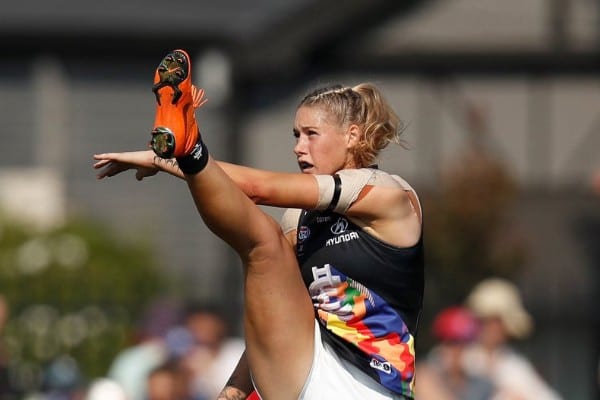More than a quarter of all social media comments directed towards sportswomen are sexist, sexualised, belittling or otherwise negative in nature.
That’s according to new research from girls’ rights agency, Plan International, which looked at a selection of social media commentary on Facebook posts shared by major sports news broadcasters in Australia over the past 12 months.
Nine’s Wide World of Sports, 7 Sport, 10 Sport, Fox Sports and ABC Grandstand were some of the news broadcasters analysed.
Twenty-three per cent of all negative comments towards sportswomen were sexist in nature, typically referring to traditional gender stereotypes. Twenty per cent of comments belittled women’s sports, their athletic abilities and skills.
Sadly, this is not a surprise at all. The question is, what can be done to change this? https://t.co/GMNccDbHpt @PlanAustralia @hayley_cull @abcnews #WomenInSport #socialmedia
— WomenSportAustralia (@auswomensport) April 23, 2019
The study also highlighted that the nature of comments directed towards sportswomen and sportsmen is fundamentally different. Fourteen per cent of negative comments towards women were sexualised in nature, while no comments directed towards men were sexualised.
Negative comments about sportsmen tended to focus on issues of cheating or drug use.
Social media abuse of Australian sportswomen made headlines last month, when an image of AFLW player Tayla Harris was taken down from Chanel 7’s social media after receiving a large number of sexist and derogatory comments.
Harris then posted the image to Twitter herself, along with the caption: “Here’s a pic of me at work…think about this before your derogatory comments, animals.”
Here’s a pic of me at work… think about this before your derogatory comments, animals. pic.twitter.com/68aBVVbTTj
— Tayla Harris (@taylaharriss) March 19, 2019
Plan International Australia CEO Susanne Legena said the findings of the study had serious implications for girls and young women who are often witness to the tirade of online abuse directed towards sportswomen.
“Girls and young women face threats to their freedom online and offline every day due to the level of sexist abuse and harassment,” said Legena.
“This toxic online abuse can not only have severe consequences for the victim’s wellbeing and mental health, but also for girls and young women in the broader community who witness this despicable behaviour and receive the message that they are not welcome in this space.”
“Fear of discrimination and abuse is silencing girls and young women, restricting them from speaking out, participating and leading everywhere from social media forums to politics.”
Legena also indicated that online harassment perpetuated harmful gender stereotypes, which have been linked to girls’ low participation rates in sport.
“Everybody in our community has a responsibility to combat this toxic behaviour every single day by tackling attitudes that reinforce the idea that our girls deserve less respect, fewer opportunities and less pay than our boys.”


